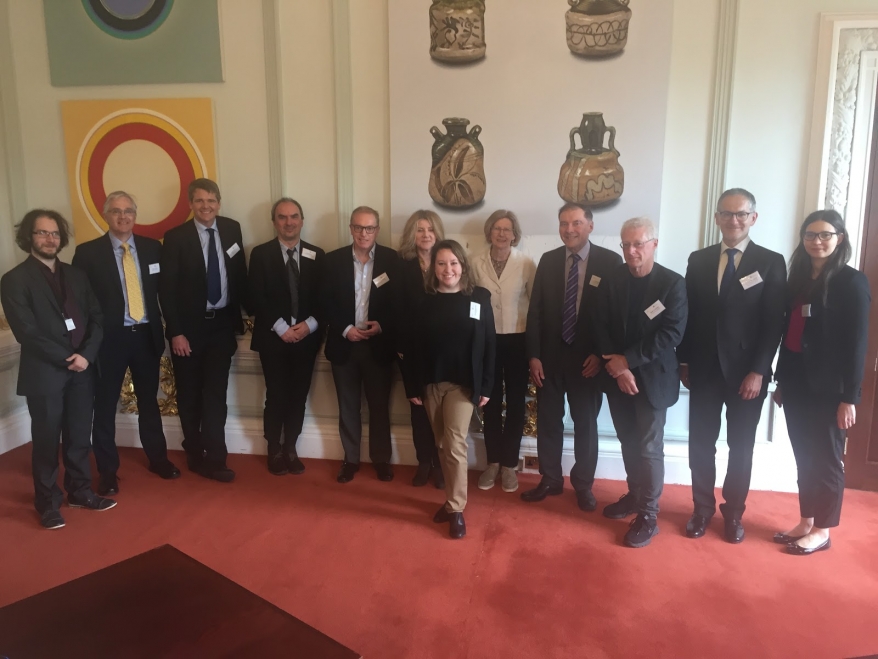On 3 May 2019, the UK Council for Graduate Education (UKCGE) and the EUA Council for Doctoral Education (EUA-CDE) met together in London at an event entitled ‘The European landscape of doctoral education: the future of research collaboration’. This forum aimed to discuss future research policy with the prospect of Brexit looming, «bringing some clarity to the picture of uncertainty» (as stated by the UKCGE). Particular emphasis was placed on doctoral education funding, mobility and the attractiveness of PhD training.
In the opening session Luke Georghiou, Deputy President and Vice-Chancellor of the University of Manchester, introduced the Brexit threats and mitigations related to mobility of early career researchers, focusing not only on geographical mobility but also intersectoral (academia-public/private sector) and interdisciplinary mobility. Gill Houston, UKCGE Chair, explained the importance of research collaboration with a focus on innovative education in PhD training, following the five themes explored at the International Conference on Developments in Doctoral Education and Training, Dublin 2019. The landscape of doctoral education across Europe, including the results of the EUA’s survey of doctoral education and the progress on Horizon Europe, was discussed by Alexander Hasgall (head of EUA-CDE), Douglas Halliday (Vice-Chair of UKCGE), and Lidia Borrell-Damian (EUA Director for Research and Innovation). Their talks addressed the quality of doctoral education and the differences of doctoral courses in the UK and across Europe generally (the EUA survey was compared also with the Eurodoc survey on the structure of doctorates across Europe). Speakers also focused on the relationship between doctoral candidates and supervisors, as well as transferable skills developed during the PhD course that could serve for a variety of careers, not necessarily linked to academia.
Eurodoc actively contributed to the two parallel group panel discussions on the strengths of the current approaches to doctoral education across Europe and on the opportunities and challenges related to the collaboration between UK and Europe in the light of Brexit. Beyond the survey on the structure of doctorates across Europe, we discussed the importance of training on Open Science not only for early career researchers but also for supervisors. Keeping, maintaining and reinforcing collaborations were also declared as key priorities. We further addressed how fundamentally important it is to break down barriers related to bureaucracy, such as difficulties experienced in the translation of the PhD diploma or the low mobility support offered by receiving institutions during international mobility. High quality doctoral education must be focused on what makes the researcher independent, the importance of structured versus non-structured postdoctoral appointments, and the career portfolio (see Eurodoc transferable skills report). Lastly, Eurodoc, EUA-CDE and UKCGE agreed on the importance of mental health support within academia, particularly when considerable mobility (geographical, intersectoral and interdisciplinary) is asked of researchers. We will address these themes following the developments of Brexit, lobbying with a single voice.
Link for downloading the presentations: http://www.ukcge.ac.uk/events/documents/euacde19-presentations-91.aspx
Giulia Malaguarnera, General Board Member of Eurodoc

